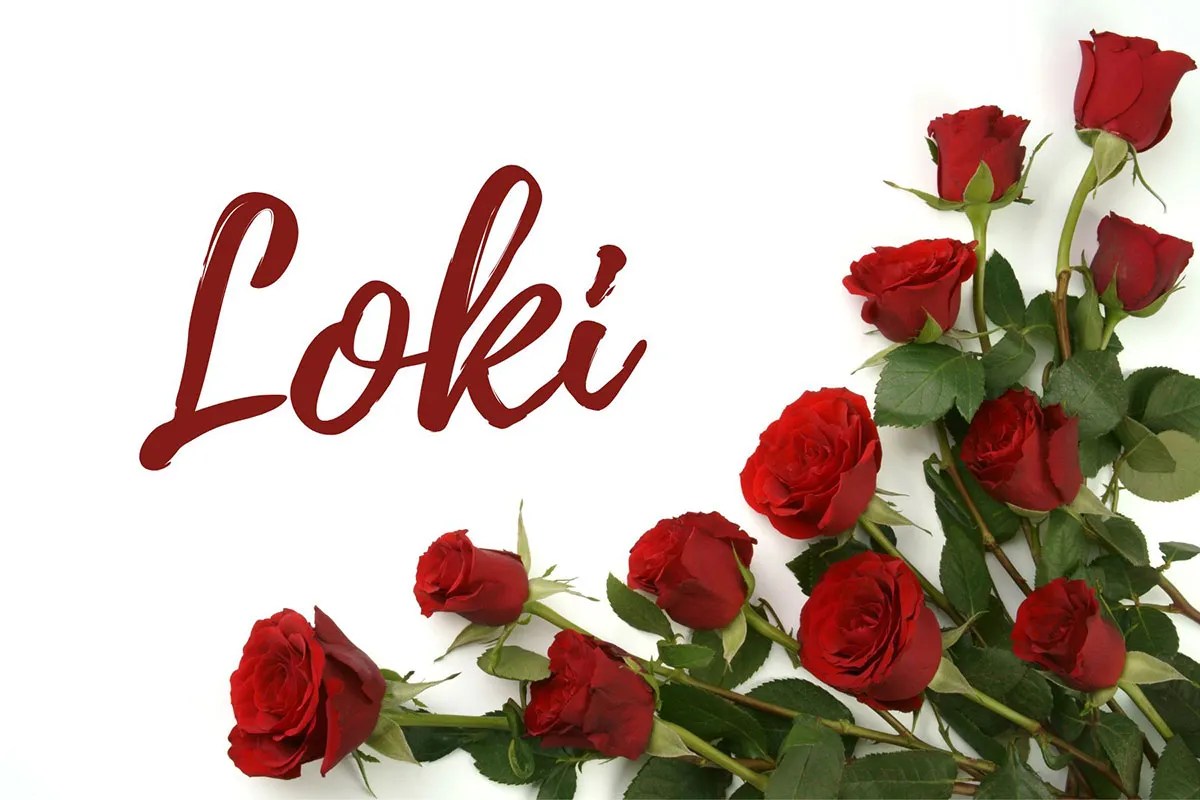When we think of the name 'Loki', a multitude of images and ideas rush through our minds. From the mischievous god of Norse mythology to the beloved Marvel character, Loki has become a cultural icon worldwide. But what does Loki truly mean, and what lies behind this intriguing name? In this article, we will delve into the rich history and significance of Loki, exploring his origins, attributes, and how he has evolved through the ages.
The name 'Loki' has deep roots in ancient Norse culture, where it is associated with cunning, mischief, and sometimes chaos. As a figure in mythology, Loki is not just a trickster; he plays a pivotal role in various legends, often causing as much trouble as he resolves. This duality makes him a complex character worthy of exploration, as we seek to understand what does Loki mean in both historical and modern contexts.
As we journey through the realms of mythology and pop culture, we will uncover the layers of Loki's identity. From his relationships with gods and heroes to his portrayal in contemporary media, we will answer the burning question: what does Loki mean to us today? Join us as we unravel the compelling narrative behind one of mythology's most enigmatic figures.
What is the Origin of the Name Loki?
The name 'Loki' is believed to have originated from Old Norse, with scholars suggesting that it may derive from the word "loka," which means "to close" or "to lock." This etymology is significant as it hints at Loki's role as a figure who often finds himself entangled in situations that require cunning resolutions. The transforming nature of his character is reflected in the very name itself, suggesting a connection to confinement and liberation.
Who is the Norse God Loki?
In Norse mythology, Loki is often described as a complex deity, sometimes referred to as a god, sometimes as a giant. He is known for his shape-shifting abilities and cleverness, often using these traits to outsmart both gods and creatures alike. Loki's narratives are prevalent in various sources, including the Poetic Edda and the Prose Edda, which detail his adventures, betrayals, and eventual doom.
What are Loki's Key Traits?
Loki embodies several key traits that define his character in mythology:
- Mischievousness: Loki's playful nature often leads to trouble, making him a festive yet troublesome figure.
- Intelligence: His cunning and quick thinking often allow him to navigate complex situations.
- Shape-shifting: Loki's ability to change forms enables him to deceive others and escape capture.
- Duality: He represents both creation and destruction, often blurring the lines between friend and foe.
What Does Loki Mean in Modern Culture?
In contemporary society, Loki has transcended his mythological roots to become a symbol of rebellion and individuality. With the rise of Norse-themed media, particularly through the Marvel Cinematic Universe, Loki has gained new life as a character who resonates with fans around the globe. But what does Loki mean in today's context?
How Has Loki Been Portrayed in Media?
The portrayal of Loki in films and television has significantly influenced public perception of the character. In the Marvel franchise, he is depicted as a charming yet conflicted anti-hero, captivating audiences with his wit and charisma. The series "Loki," released on Disney+, further explores his character, delving into themes of identity, purpose, and redemption.
What Does Loki Mean to Fans?
For many fans, Loki represents the complexities of human nature. His flaws and strengths are relatable, encouraging viewers to embrace their own dualities. The character's evolution throughout the Marvel series has sparked discussions about morality and the nature of good versus evil. This nuanced interpretation of Loki has solidified his status as a beloved figure in popular culture.
Biography: The Life and Legacy of Loki
As a mythological figure, Loki's biography is rich with tales of adventure, betrayal, and transformation. Below is a brief overview of his narrative:
| Attribute | Details |
|---|---|
| Full Name | Loki Laufeyjarson |
| Origin | Norse Mythology |
| Key Relationships | Thor, Odin, Freyja |
| Famous Myths | The Death of Baldr, The Binding of Loki |
| Portrayal in Modern Media | Marvel Cinematic Universe |
What Lessons Can We Learn from Loki?
Loki's character teaches us valuable lessons about the importance of embracing our complexities. His journey reflects the struggles of identity, the consequences of choices, and the quest for redemption. By analyzing Loki's story, we can better understand our own lives and the dualities we all possess.
How Can We Embrace Our Inner Loki?
Embracing our inner Loki involves recognizing our multifaceted personalities and the potential for growth and change. Here are a few ways to channel your inner Loki:
- Embrace Creativity: Use your imagination to find innovative solutions to problems.
- Be Open to Change: Allow yourself to adapt and evolve, just as Loki does.
- Challenge Norms: Question societal expectations and forge your own path.
- Practice Self-Acceptance: Acknowledge your flaws and strengths; they make you unique.
Conclusion: What Does Loki Mean to You?
In conclusion, the name 'Loki' encompasses a rich tapestry of meanings that span from ancient mythology to modern culture. Whether viewed as a trickster god or a charming anti-hero, Loki serves as a reminder of the complexities of identity and the human experience. So, what does Loki mean to you? Perhaps it’s time to reflect on your own journey and embrace the layers of your personality, just as Loki does.


